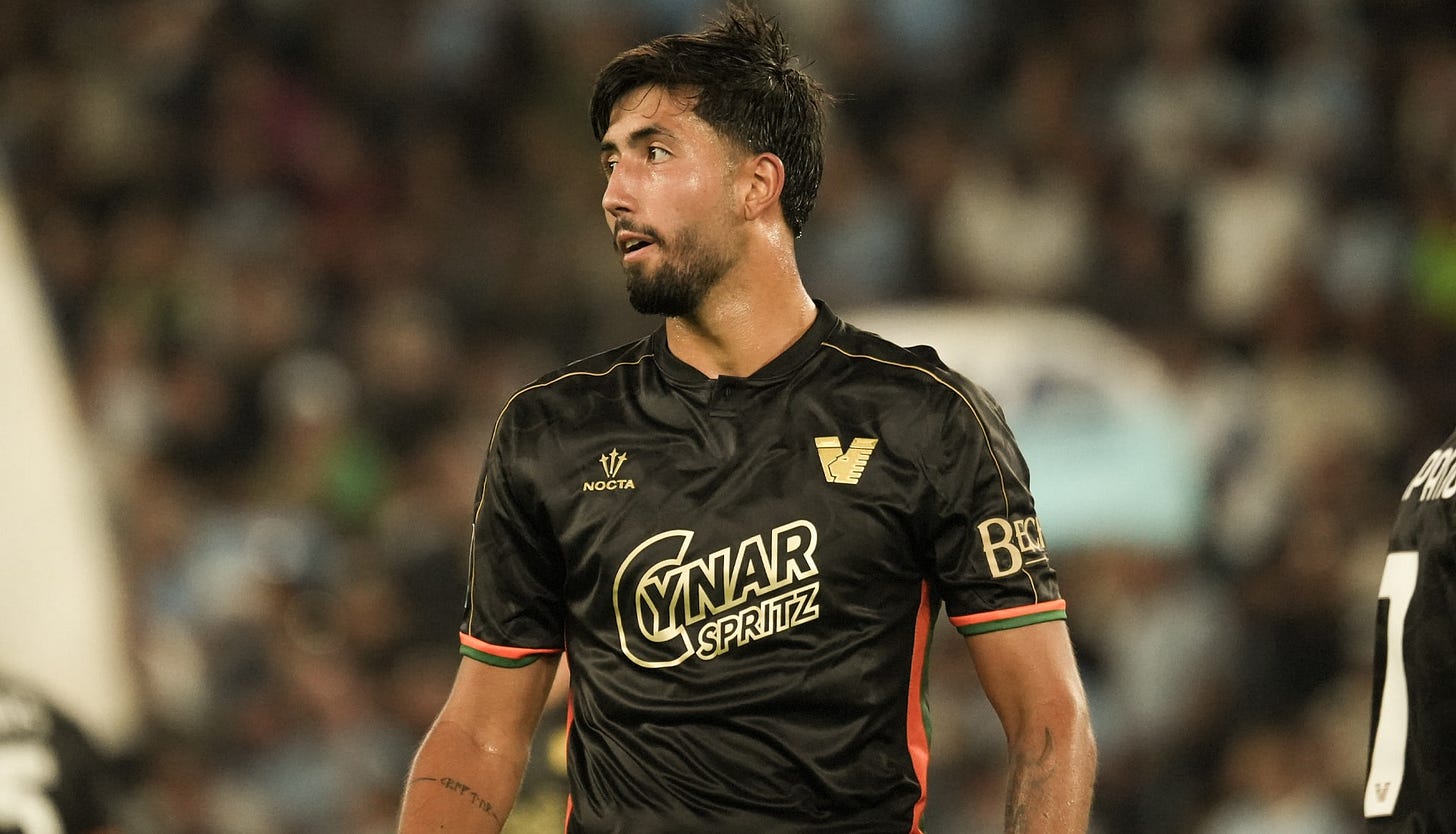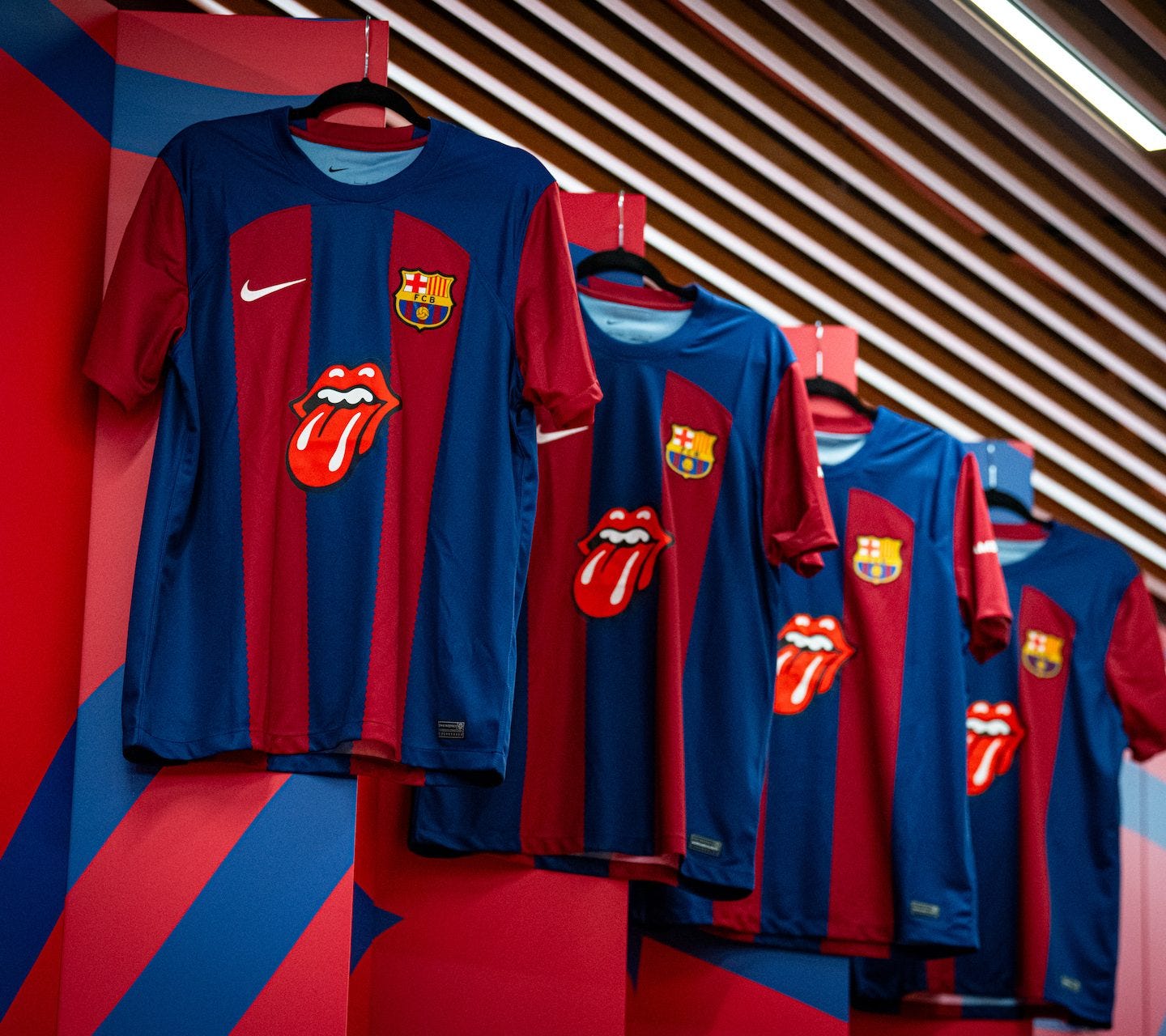Football’s Evolving Relationship With Kit Manufacture
The relationship with traditional kit manufacturing is evolving—fast.
In football, the status quo of kit manufacturing is rapidly evolving. As clubs across major European leagues take steps away from traditional manufacturing relationships with sportswear giants like Nike, adidas and Puma in favour of working towards in-house supply chains, the balance of power within the sport looks to change.
Earlier this year, rumblings of a major change in the relationship between Barcelona F.C. and Nike rocked the industry, flagging the potential for widescale change from the top down. While Barcelona F.C.’s appeal to withdraw from its contract with Nike was rejected by the Provincial Court of Barcelona, meaning it must honour its contract with the sportswear brand until 2028, the ball has been set in motion.
Earlier this year, we summarised the key challenges and opportunities of in-house manufacturing. Since then, there’s been an uptick in teams working towards making it a reality.
Change is coming—with more and more clubs across Europe, including within the Premier League, taking steps towards bringing their manufacturing in-house, we assess football’s fast-evolving relationship with kit manufacturing to highlight what’s changed.
What’s happening at Wolves?
With the 2024/25 season underway, all eyes are (back) on the Premier League. While last season’s promoted teams have all returned to the Championship, three teams aren’t all that’s new. Wolverhampton Wanderers (Wolves) have ushered in a new name in the world of kits, SUDU.
New kit manufacturers in the league are a rarity, so when it happens, it demands attention. Beyond the shock of one of the league’s teams stepping away from a household name like Castore, the arrival of Sudu speaks to the bigger picture concerning clubs’ move(s) away from sportswear’s main players.
A bold contrast to the partnership deals of adidas and Nike with the league’s “Big Six” teams – which cross-seasonally make headlines for the enormous deals they generate – Wolves’ deal is a significant step towards genuine in-house manufacturing, as SUDU is backed by the team’s owner Fosun.
With Fosun’s chairman Guo Guangchang serving as a director at SUDU, and the brand registered at Wolves’ Molineux Stadium home, the partnership demonstrates how teams and their owners can leverage business deals to free themselves of “restrictive” brand deals—a move that Wolves says “puts club and fans first.”
Although it remains too early to make a full assessment of how beneficial or damaging the move could be, a smaller cut of profits being taken by suppliers could prove financially beneficial for the club, especially as SUDU is an offshoot of Wolves’ retail and wholesale partner, Levy Merchandising.
This model could be replicated by other clubs, with owners acquiring or investing in emerging apparel brands to fast track product development, supply chain and operations build out.
Whether or not this move will be replicated across the league is dependent on existing contracts and its long-term financial viability, but it certainly signals a big shift in the status quo.
The Venezia Shift.
One of the most significant shifts in the kit world to come out of the 2024/25 season so far, comes from Serie A courtesy of Venezia F.C.
Where football’s New Luxury ascension and fashion crossover – over the past few years – is concerned, few clubs have achieved the cross-cultural of Venezia F.C.
Heralded by respected fashion and culture publications like Highsnobiety as “the world’s most fashionable club,” the Italian team has continually struck gold, season-to-season, with an aesthetic offering that effortlessly merged lifestyle with sportswear.
A formula perfected through its contract with Kappa, the supplier and team hit such a strong stride that they’d become somewhat synonymous, but during the 2024/25 pre-season, it became apparent that something was changing.
During pre-season friendlies, the team appeared sporting DIY kits free of supplier logos and sponsors, leaving fans to assume that, now that the Kappa contract had ended, Venezia F.C. would be bringing its kits in-house.
However, these rumours were quickly put to bed with the announcement that Drake’s Nike imprint, NOCTA, would be the team’s official sponsor, thanks to the Canadian rapper’s involvement with the global sports-focused firm APEX Capital.
A significant merging of fashion and football, the move marks an additional move into the sport by Drake, whose investments also see him aligned with Liverpool F.C. and AC Milan.
While the move doesn’t see Venezia F.C. bring its manufacturing house, as assumed during the pre-season, it may suggest greater creative control from the team that could bolster its global presence.
Barcelona’s future.
Although Barcelona’s attempt (earlier this year) to terminate its contract with Nike proved unsuccessful, the media frenzy surrounding the move, and its significance would suggest that their relationship will likely come to an end when their current contract comes to a close in 2028.
Since 2022, Barca has been setting the stage for an in-house manufacturing shake-up through Barca Licensing and Merchandising (BLM).
Through its in-house company, the team began managing its retail and licensing operations, including its kits, which has resulted in a series of music-led collaborations – Rolling Stones, Rosalia, OVO – through its sponsorship deal with Spotify. Although the move didn’t free the team of its ties with Nike, which still designs and produces the kits, it gave control of distribution and sales back to the team.
Once the team’s contract with the sportswear giant does come to an end, it’s safe to assume that it will be looking to utilise BLM to bring design and production in-house, which, thanks to the cultural significance of the club, could signal similar moves by the sport’s biggest players.
What comes next?
One thing is clear; making the changes required to bring kit manufacturing in-house is big business, and as it stands, isn’t commercially viable for all teams.
Although many clubs have made the leap in the past, most have returned to the perceived safety of partnering with brands like Nike, adidas, and Umbro, due to the challenges outlined in our previous post.
However, the potential opportunities such moves present are enticing. With the right backing from owners and partners, the shift is not only possible but looks to become a more frequent occurrence as we move through the 2024/25 season and beyond.








